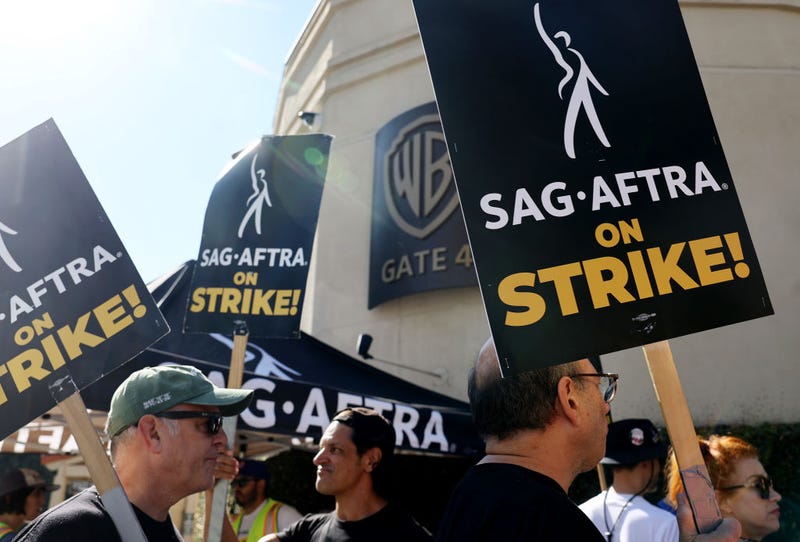
While writers in Hollywood are back on the job, it appears there's no end in sight for the actors' strike, which began in mid-July.
Talks between the Screen Actors Guild-American Federation of Television and Radio Artists (SAG-AFTRA) and the union representing the studios and streamers were suspended this week after negotiations between the two sides fell apart.
The Alliance of Motion Picture and Television Producers (AMPTP) said in a statement that the gap between their proposals was "too great" and that conversations were no longer moving in a productive direction.
"SAG-AFTRA's current offer included what it characterized as a viewership bonus that, by itself, would cost more than $800 million per year – which would create an untenable economic burden," AMPTP said.
The alliance said it extended several offers -- including increases in residuals for streaming video, salary increases, more pension and health contributions and relocation allowances, along with AI protections -- but that SAG-AFTRA rejected everything.
In a statement to its roughly 160,000 members, SAG-AFTRA accused AMPTP of using bullying tactics.
"They intentionally misrepresented to the press the cost of the above proposal – overstating it by 60%," the union said. "They have done the same with A.I., claiming to protect performer consent, but continuing to demand 'consent' on the first day of employment for use of a performer's digital replica for an entire cinematic universe (or any franchise project)."
The union went on to say studios and streamers "refuse to protect performers from being replaced by AI, they refuse to increase your wages to keep up with inflation, and they refuse to share a tiny portion of the immense revenue YOUR work generates for them."
The union called on its members to continue to picket outside studios.
Without a deal between the two unions, it's unlikely that most movies and TV shows will resume production before the end of the year, which could delay the release of some upcoming movies and shows, according to reports.
Earlier this month, the Writers Guild of America approved a new three-year contract with major studios, five months after launching a strike. It was Hollywood's second-longest strike -- just five days short of the 1988 WGA strike, which lasted 153 days.
